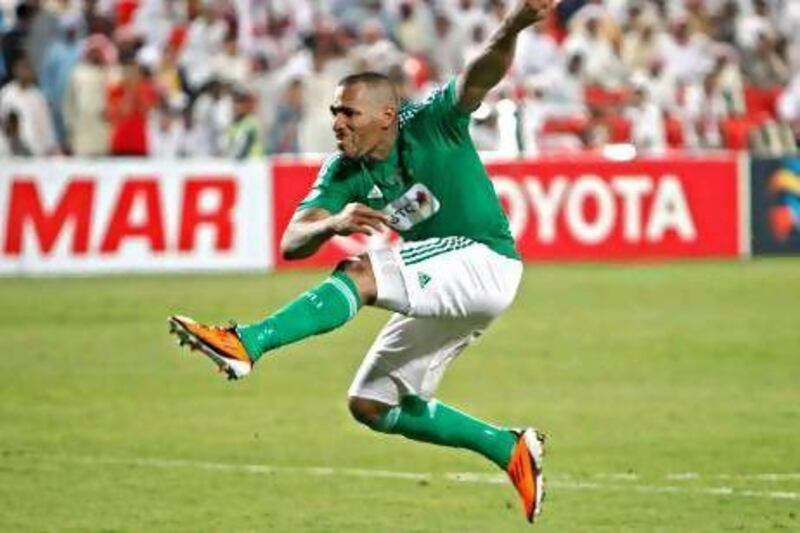One of the great unanswered questions in Asian football currently must be about the decline of Saudi Arabia as a regional power over the past few years.
Time was during the 1980s, 90s and even the first half of the last decade that Saudi Arabia were undisputed bosses of the continent.
That question came sharply into focus last night as one of their most established clubs, Al Ahli won their Asian Champions League last-16 tie against Abu Dhabi's Al Jazira at the Mohammad bin Zayed Stadium in the UAE capital.
Just sample these achievements. The national side made five consecutive Asian Cup finals from 1984 to 2000, winning it three times.
They qualified for four consecutive World Cups until 2006.
In their first, in 1994, a golden generation gleaned from the 1989 Under 17 World Cup-winning side made it to the second round from a group that included Holland (to whom they only lost 2-1 after taking the lead) and Belgium whom they beat 1-0.
Their club sides were regular visitors to the latter stages of the continent's club championships; Riyadh's Al Hilal and Jeddah's Al Ittihad have won this tournament twice each and finished runners-up besides.
Only South Korea and Japan have produced more club champions.
Saeed Al Owairan's goal against Belgium in 1994, a Maradona-esque run that took him past half the side from his own half, captured something of the astounding individual skill many of their players brought.
But it didn't reveal the collective beauty of their best sides, built on elegant short passing and geared towards an essentially counter-attacking game.
It was within this template that men such as Saleh Al Naeema, the Saudi Beckenbauer, Majed Abdullah, the desert Pele and the country's greatest player, the buccaneering midfielder Fouad Amin, the wispy youngster Khalid Al Rowaihi (who like the UAE's Theyab Awana, died in a car crash far too young) and Sami Al Jaber thrived.
In acknowledgement to the climate they grew up in, these were patient footballing sides, taking their time with the ball before suddenly, beautifully picking a way through.
Glimpses of that approach were evident in Al Ahli's performance last night.
They refused to hoof the ball aimlessly anywhere, forever looking for just the right pass and sometimes looking for it one time too many.
For vast periods they seemed to be doing nothing, and Jazira's front two of Bare and Ricardo Oliveira muscled their way into promising positions early on.
But every now and again, as when Marcelo Camacho secured the lead for Ahli after 22 minutes and when Amad Al Sulaiman equalised, they introduced an intricate incision into their game that spoke of a greater tradition of sophistication.
At least a hint of the answer to their fall lay in this game.
Jazira's physicality in approach seemed just too much for Ahli, especially in midfield where they were regularly muscled out of the way.
Jazira's players just seemed so much bigger on many occasions and it is a sense that has blighted Saudi Arabia on the international stage more recently.
Forget the European or South American sides, even other Asian teams such as South Korea appear fitter and stronger.
Ahli, of course, may be an established and proud club as evident in the small but extremely vocal travelling support at the stadium.
But they are not their country's best.
They've only won the league twice and are cup specialists - they won the King's Cup just last week and have won the two main cup tournaments 15 times.
Even as the game stretched into extra-time, the physicality looked like it might prove decisive. Ahli looked pretty but Jazira more robust.
And though Ahli went through on penalties, it still felt like a little bump as a new, more physical world was in danger of passing Saudi Arabia by.
Follow us
[ @SprtNationalUAE ]





